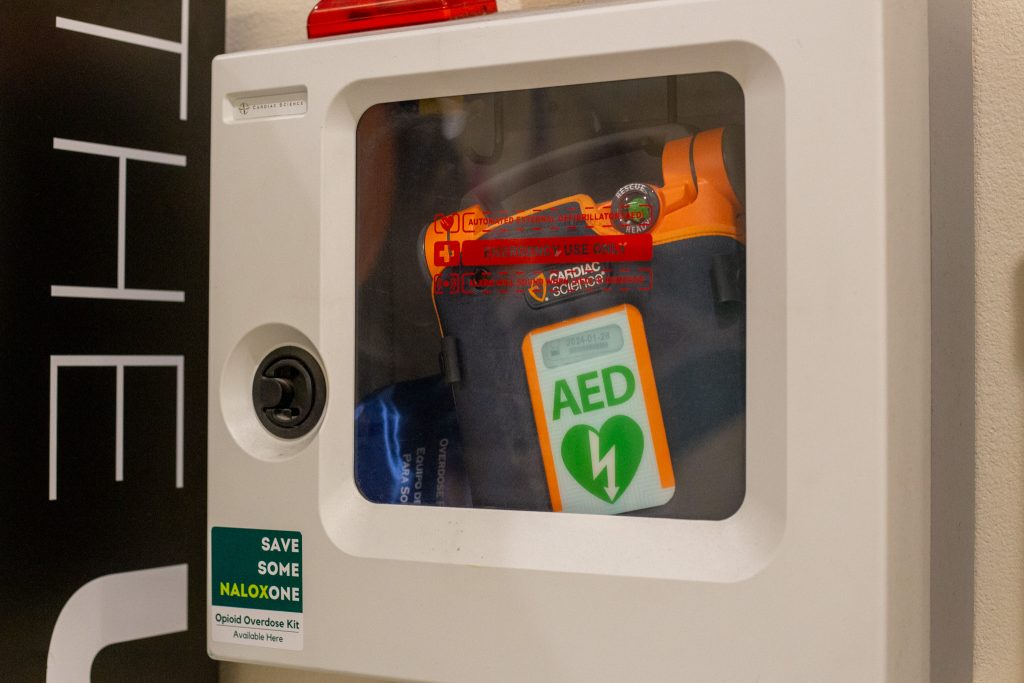Naloxone, a medicine used to treat opioid overdoses — commonly referred to as NARCAN — is now available on campus.
For the past four years, the Binghamton University Opioid Overdose Prevention Program (OOPP) has provided naloxone training to the campus community. Since the spring of 2019, the program has trained approximately 1,600 campus community members. Now, naloxone kits are available in life-safety equipment stations campus-wide.
Recently, New York state mandated that naloxone be available in all residence halls. David Hubeny, BU’s executive director of emergency management, reached out to Bennett Doughty, a clinical assistant professor in the School of Pharmacy and Pharmaceutical Sciences and director of OOPP, to help manage the naloxone supply. The two worked together to report the naloxone use to New York state, which funds the costs of naloxone kits as well as distribution to the automated external defibrillator (AED) locations. An AED is used to help those experiencing sudden cardiac arrest.
Hubeny said each AED cabinet on campus consists of an automated external defibrillator (AED), a stop the bleed kit and now, NARCAN. He expressed that while each of these items serves a different purpose, making these life-safety devices widely available campus-wide will make for a safer campus community.
“We recognized this as an opportunity to expand the program to every building on campus, and we used AED cabinets as a way to get it out there,” Hubeny said. “We thought it was far safer to be consistent, knowing that people could go to any AED cabinet and find the same life-safety equipment.”
According to Doughty, naloxone is an “extremely” safe and effective way to reverse opioid overdoses while allowing community members to receive the care they need to decrease the risk of continued use, relapses or overdoses.
“Opioid overdoses are happening across the world and on a local level,” Doughty wrote in an email. “Looking at the reported rates of overdoses, Broome County is actually in the upper quartile of reported overdoses, so this is happening currently around us.”
While opioid misuse is a national concern, both Hubeny and Doughty said the local community has been greatly affected. The University hopes that the addition of naloxone on campus, as well as OOPP training programs, will impact both students and the greater community.
Students can receive naloxone training through BU’s OOPP free of charge. The training is offered during the first week of each month with both an in-person and virtual option, and student organizations may reach out to the OOPP for separate training. During this training, Doughty says naloxone is distributed for those not able to acquire it for free elsewhere.
Ethan Miller, a senior majoring in economics, expressed concern that the kits may only be useful for people on campus.
“Having the kits available on campus is a step in the right direction, but it’s likely that students need for this type of drug would happen at an off-campus location,” Miller said. “There should be more education on opioid use and prevention in general on campus.”
Alyssa Dark, a senior majoring in nursing, shared how her background in health care has shaped her support for NARCAN.
“From my experience in the field of both nursing and EMS (emergency medical services), I believe that it is a no-brainer to have NARCAN readily available and accessible to all students,” Dark said. “With the current drug market lacing a majority of illicit substances with fentanyl, it could mean the difference between life and death in certain situations.”



